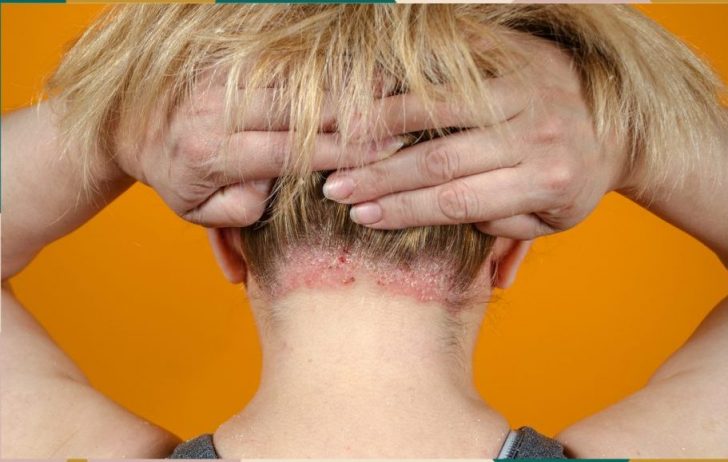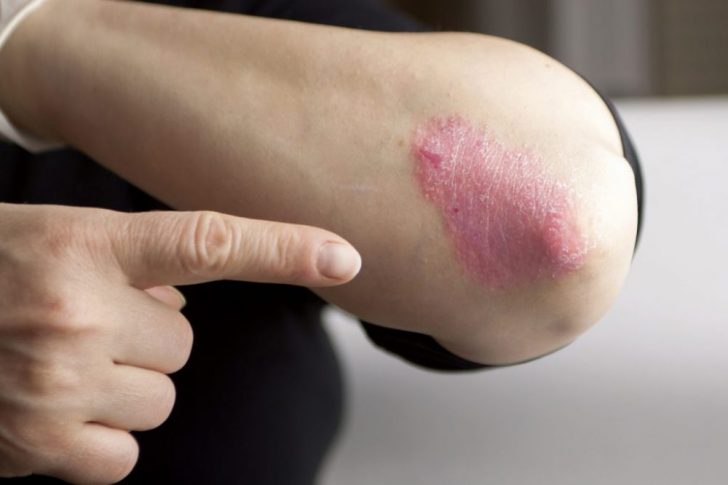If you’ve noticed itchy, scaly red patches on your elbows, knees, scalp, or trunk, taking a trip to the doctor’s office would be a good idea.
These signs can be indicative of a skin disease called Psoriasis – a long-term chronic disease for which a cure is yet to be discovered. The disease acts up in cycles, flaring for a few weeks/months until it subsides into remission again.

To keep a lookout, here are a couple of things you need to know about the disease:
Most Common Symptoms
While these may differ amongst individuals, the disease does have some common symptoms including:
- Dry, cracked skin (prone to itching and bleeding)
- Red patches of skin with silverish thick scales
- Stiff or swollen joints
- Soreness, burning, or itchiness
- Small scaling spots (commonly seen in children)
- Ridged, thickened, or pitted nails
A singular patch of psoriasis can be either as small as a few dandruff-like spots to bigger eruptions that cover large areas.

Causes of Psoriasis
According to current research, the disease stems from the immune system, which causes the skin to renew itself at a higher rate. While scientists think both genetic and environmental factors play a role in the development of the disease, it’s uncertain exactly what goes wrong in the immune system that allows it. However, a few common triggers have been outlined, including:
- Weather (especially dry, cold conditions)
- Speedy withdrawal of systemic or oral corticosteroids
- Injury to the skin (severe sunburn, bug bite, cut/scrape)
- Some medication (antimalarial drugs, high bp drugs, or lithium)
- Stress
- Alcoholism
- Smoking (or secondhand smoke)
Risk Factors of Psoriasis
The following factors increase your risk of developing psoriasis. In one-third of the cases, signs show up in the early pediatric years. As of now, evidence indicates that anyone can develop the illness.
Stress – High-stress levels affect your overall wellbeing and that includes your immune system too. If you’re a habitual stressor, try opting for calming and relaxing activities.
Genetics – If your parent(s) suffer from psoriasis, you might want to keep an eye out as the disease tends to run in families.
Smoking – Tobacco can not only cause the disease but also cause its symptoms to worsen.

Wrapping It Up
No chronic illness is easy to deal with, even more so when they have no cure. If you’ve developed psoriasis, you have to keep a lookout for other conditions such as high blood pressure, type 2 diabetes, obesity, cardiovascular disease, mental health conditions, or other autoimmune diseases. Be sure to visit your doctor immediately if you notice any signs or symptoms.


